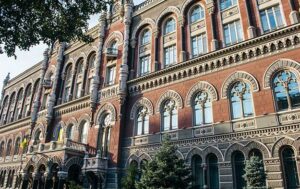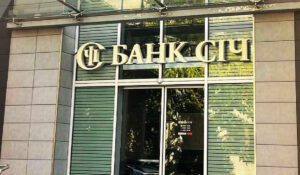
The National Bank of Ukraine (NBU) has cancelled licenses of 13 non-banking financial institutions and removed 10 financial institutions from the registers, the regulator’s website reported.
Thus, on the basis of their own applications, all existing licenses of ARES Capital LLC, Infinance LLC, KF.ua LLC, Omega-Finance LLC, FC Aland LLC, FC Alma LLC, FC Intime Finance LLC, and FC Monti LLC were revoked. All companies except for FC “Monti” have been excluded from the State Register of financial institutions.
MOTOR SICH JSC is also excluded from the Register of persons who are not financial institutions but are entitled to provide certain financial services due to the lack of a valid license for the provision of financial services.
In addition, based on the applications received, certain licenses have been revoked for Prime Finance Financial Company LLC to provide guarantees, Debt Obligation Fund Factoring Company LLC to provide guarantees, and Eliance Financial Company LLC to provide financial leasing services.
The National Bank revoked (cancelled) the licenses to provide financial services of CC “Garanta-L.K.” and CC Partner-Plus and excluded these credit unions from the State Register of financial institutions based on their own applications, guided by the special procedure during martial law*.
As of October 1, 2022 the volume of assets of CC “Garant-L.K.” was UAH 1,032 million (0.067% of the credit union market volume), liabilities – UAH 105 thousand (0.012% of the credit union market volume), including UAH 105 thousand – liabilities on which no interest is accrued.
The volume of assets of CC “Partner-Plus” as of October, 1, 2022 made UAH 996,65 th. (0,065% of the total volume of credit unions market), obligations – UAH 23,16 th. (0,003% of the total volume of credit unions market).
Such decisions were made by the Committee on supervision and regulation of non-banking financial services markets on November 3, 2022.

The National Bank of Ukraine (NBU) expects that if active hostilities with the Russian occupiers continue until mid-2024, the harvest of grain and leguminous crops in the country will decrease (under a pessimistic scenario with a blockade of its ports) to 51.5 million tons in 2023 (- 40% compared to 2021), and up to 52.5 million tons in 2024 (-38.7%).
According to the NBU inflation report for October, the key factor in forecasting crop volumes will be the availability of crop exports from Ukrainian seaports.
Thus, under the scenario of the continuation of Russian aggression until mid-2023, it is expected that the total harvest of grains and legumes in 2023 will be 57 million tons, provided Ukraine has full access to agricultural exports through its Black Sea ports, and 51.5 million tons in the event of their blockade by Russia.
Similarly, if the war continues until mid-2024, Ukraine will be able to harvest in 2024 not 62 million tons of cereals and legumes, as in the case of free maritime exports, but only 52.2 million tons due to the blockade of its port infrastructure.
At the same time, the National Bank predicts the harvest of grain and leguminous crops in 2022 at the level of 52.5 million tons.
The bank recalled that in 2019 Ukraine harvested 75.1 million tons of grain and leguminous crops, in 2020 – 64.9 million tons, in 2021 – a record 85.7 million tons since independence.
As reported, by October 28, Ukrainian farmers had harvested 48.81 million tons of main crops from a total area of 13.13 million hectares, or 70% of the previously planned areas.
Ukraine in 2021 harvested a record harvest of grains, legumes and oilseeds of 106 million tons: grains and legumes – 84 million tons, oilseeds – 22.6 million tons.

The decline in real gross domestic product (GDP) of Ukraine in the fourth quarter of 2022 compared to the same period last year will be 35.6% compared to 34.4% in the third quarter and 37.2% in the second quarter, such is the forecast of the National Bank of Ukraine published in the inflation report on his website on Friday night.
According to him, in the first quarter of 2023, the economy will also contract – by another 17.5%, given the higher base of the first quarter of this year, when the decline was 15.1%, and recovery will begin from the second quarter of next year.
In particular, in the second quarter it will be 13.9%, in the third – 9.2% and in the fourth – 11.3%, the NBU assumes.
The estimates of GDP dynamics updated by the National Bank for the fourth quarter of this year and the first quarter of the next are slightly better than in July, when it expected a 37.5% decline in the economy in the last quarter of this year and 19% in the first quarter of next year.
At the same time, the NBU worsened the forecast for economic recovery in the remaining three quarters of 2023.
In general, the National Bank, as previously announced, predicts a decline in GDP this year by 31.5% and its growth by 4% in 2023 and 5.2% in 2024, while in July it expected a decline this year by 33.4% and growth in 2023-2024 by 5.5% and 4.9%, respectively.
Nominal GDP, according to the document, this year may be reduced to UAH 4.75 trillion from UAH 5.46 trillion last year. However, due to high inflation (30% this year, 20.8% next year and 9.4% in 2024), nominal GDP will reach UAH 6.175 trillion in 2023, and UAH 7.35 trillion in 2024 , expects the National Bank.
“The baseline scenario is based on assumptions about the launch of a new program with the IMF, the implementation of a coordinated monetary and fiscal policy, the gradual leveling of quasi-fiscal imbalances, in particular in the energy sector. The baseline scenario also assumes a tangible reduction in security risks from the middle of next year, which will contribute to the full unblocking of sea ports, reducing the sovereign risk premium and returning forced migrants to Ukraine,” the report says.
The NBU clarifies that this scenario assumes the full opening of seaports from the second half of the year, an increase in gas and heating tariffs to 50% of parity, and the return of 0.4 million refugees out of 8 million who left in 2022.
The central bank adds that this baseline moderately optimistic forecast also assumes continued active international financial support for Ukraine of $28 billion in 2023 and $20 billion in 2024, compared with $31.1 billion this year (about $24.1 billion received so far). ).
The National Bank names the prolongation of the war and its escalation as the strongest risk for this scenario, estimating its probability from 25% to 50%. With the same probability, the National Bank assumes such risks as increased emigration and energy risks of the passage of winter, as well as the termination of gas transit. However, the degree of influence of the first two is moderate, and the termination of transit, which is expected to be 20 billion cubic meters. m per year – weak.
The NBU also names the unbalancing of public finances (low government bonds rates, freezing tariffs for housing and communal services, reduction of international aid, longer issue) among the strong risks of the base scenario, but its probability is lower – 15-25%.
The cessation of the grain corridor and the non-signing of the program with the IMF are classified as moderate risks in terms of their impact on the basic macro-forecast, however, the National Bank estimates their probability at 15-25% and less than 15%, respectively.
There is also a mention in the report of such a factor as the “Marshall Plan”, which can greatly affect and improve the macro forecast, but the Central Bank estimates its probability below 15%.

The National Bank of Ukraine (NBU) has adopted a resolution to revoke its banking license from October 10 and liquidate the insolvent Sich Bank, the regulator’s press service reported on Thursday.
The corresponding decision was made by the resolution of the NBU Board No. 495-rsh dated October 6.
As reported, on August 10, 2022, the NBU board decided to classify Bank Sich JSC as insolvent due to the financial institution’s failure to fulfill its obligations to the NBU on refinancing loans within the time period established by the agreement due to insufficient funds.
The message on the regulator’s website also notes that Sich Bank did not pay interest on refinancing loans for July 2022, violating the terms of the general loan agreement concluded between the bank and the National Bank.
Each depositor of Sich Bank will receive compensation from the DGF in the full amount of the deposit, including interest accrued as of the end of the day preceding the day the procedure for withdrawing the bank from the market begins. In general, the possible amount of payments of the guaranteed amount to depositors as of July 1, 2022 is UAH 1.229 billion.
Bank “Sich” was founded in 2011. According to the bank’s website, as of January 1, 2022, its shareholders were Oleg Balanda (55.615%), Valery Razdorozhny (31.016%), Andrey Melnik (9.6257%) and Oleg Gubanov (3.7433%).

The head of the National Bank of Ukraine, Kirill Shevchenko, submitted his resignation to the President of Ukraine on Tuesday, the NBU said in a statement.
“For reasons related to health, which I cannot ignore in the future, I made a difficult decision for myself. I am leaving the post of head of the NBU. I have asked the President of Ukraine to accept my resignation,” Shevchenko is quoted as saying.
He thanked the head of state Volodymyr Zelensky for the trust shown and joint work for the benefit of the state in peacetime and wartime, as well as the NBU team and colleagues from all over the financial market.
“From the first days at the NBU, I was, first of all, an anti-crisis manager and fulfilled my mission: I ensured the smooth operation of the financial system in the extremely difficult time of a full-scale war. The war became another difficult test for our team and me personally – and we passed it with dignity,” – said the head of the NBU.
According to him, the National Bank managed to ensure the smooth operation of the financial system, prevent panic in the foreign exchange market, stop a large-scale outflow of capital in order to protect reserves, keep inflation at an adequate level and “support the state budget, understanding the difficulties in attracting funds during the war.”
“Today, the NBU is indeed stronger than ever in its ability to meet challenges and overcome crises, it is worthy of being tested by war. And it retains its ability to be the basis of post-war economic recovery and direct the entire financial sector to this,” Shevchenko stressed.
He said he was handing over the banking system to a strong, capitalized, resilient banking system for those who would come after him.
“Until the relevant decisions of the Verkhovna Rada of Ukraine on the dismissal and appointment of the head of the National Bank are made, the Board of the National Bank will continue to perform its functions and manage the activities of the National Bank in its current composition,” the message says.
As reported, the Rada appointed Shevchenko head of the NBU on July 16, 2020, before that he was the head of the board of the state-owned Ukrgasbank.
Earlier, on July 1, 2020, the head of the NBU, Yakov Smoliy, resigned due to political pressure.